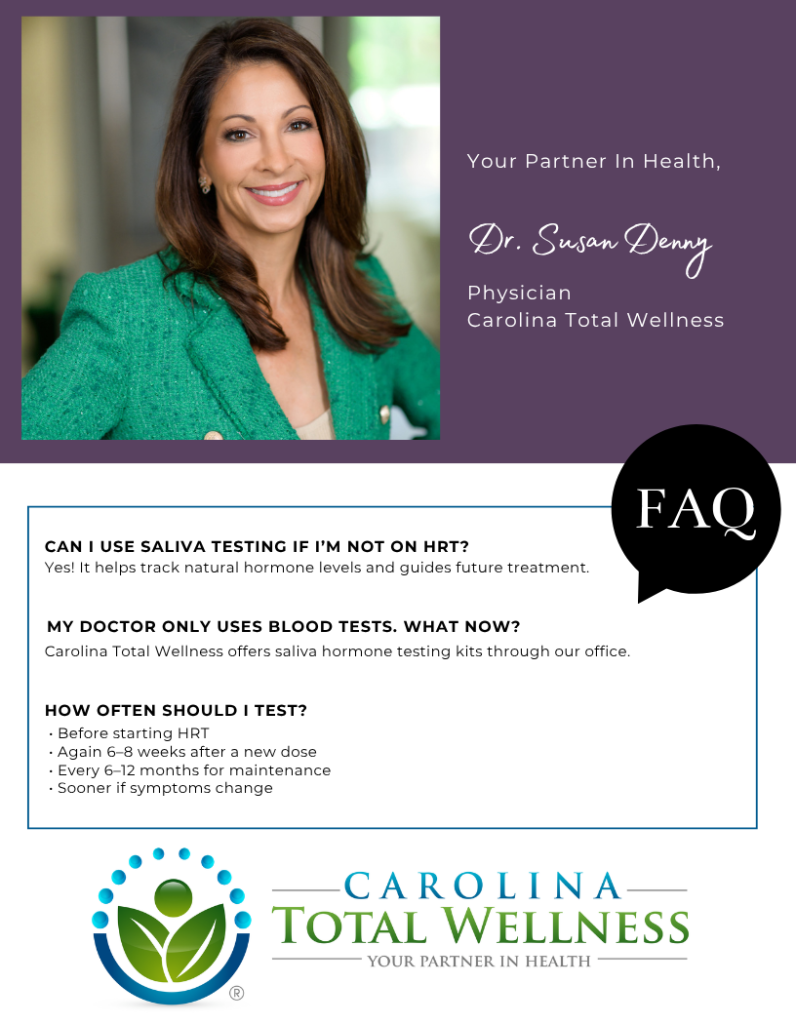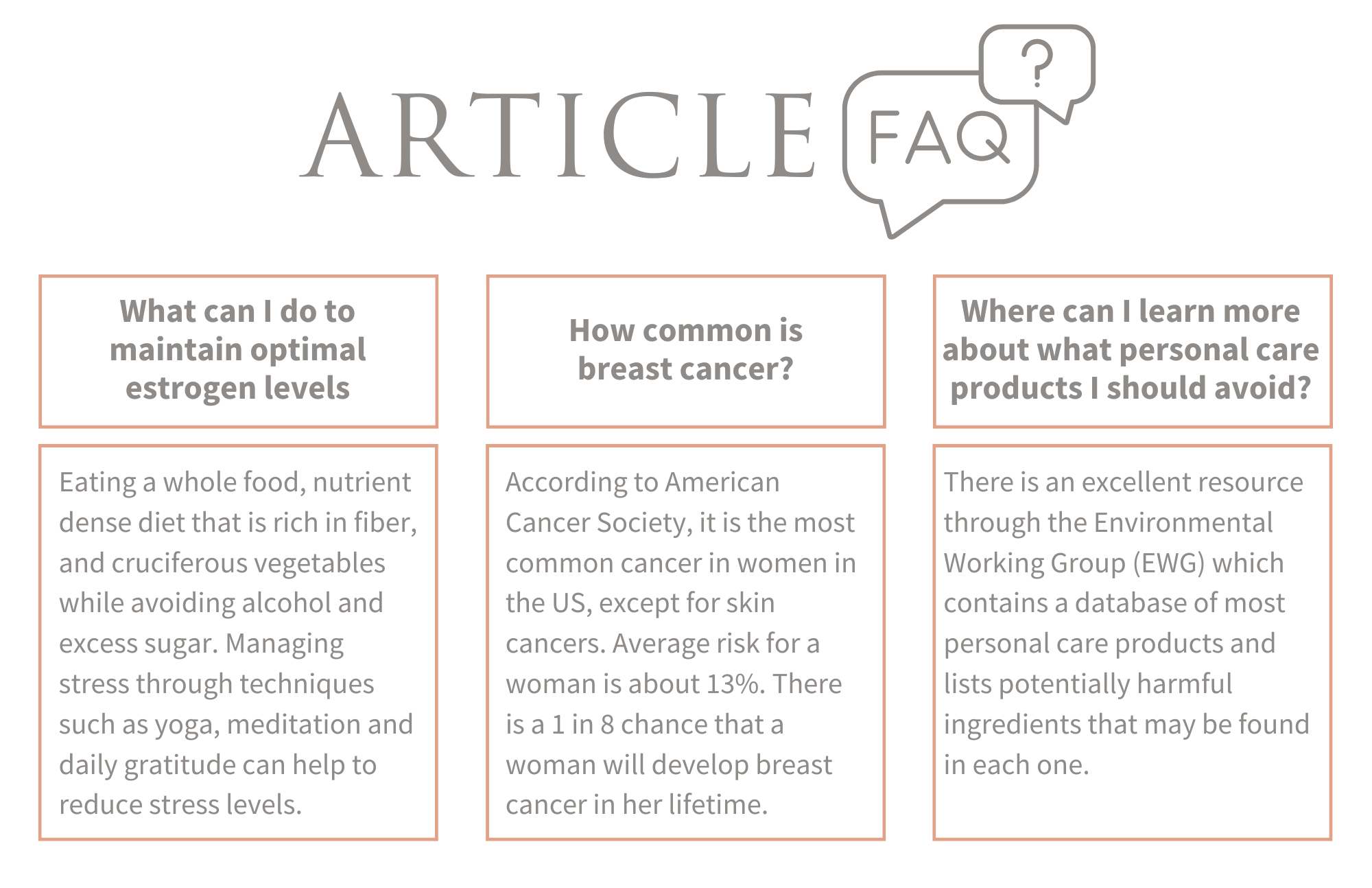

Understanding Hormone Testing: Why saliva might be the best choice
As women transition through perimenopause and into postmenopause, many experience changes in hormone levels that can affect their energy, mood, sleep, weight, and overall well-being. Hormone Replacement Therapy (HRT) is often used to help manage these symptoms and restore balance. But how do we know if your treatment is working?
That’s where hormone testing comes in
Traditionally, blood (serum) tests have been the standard method for measuring hormone levels. However, advances in medical testing have introduced a powerful alternative: saliva hormone testing. This method offers a more accurate and personalized way to evaluate hormone levels—especially for women using HRT.
Let’s explore why saliva testing may be a better option for many women in this stage of life.
Saliva vs. Serum Testing: What’s the difference?

Why Saliva testing works better for HRT
Topical or sublingual HRT absorbs directly into tissues—not your bloodstream. This means blood tests may not reflect what’s available to your cells.
Saliva testing measures the active, free hormones in your tissues, giving you and your provider a clearer picture.
Especially helpful for
Estradiol
Progesterone
Testosterone
Cortisol (stress hormone)

Advantages of Saliva Testing
Convenient & Stress-Free: Collect at home—no needles, no clinic visits.
Ideal for Topical HRT: Reflects hormone levels that reach your tissues.
More Personalized: Captures daily fluctuations for better dosing accuracy.
Cost-Effective & Non-Invasive: No lab fees or blood draws. Just a simple saliva sample.
Who Should Consider Saliva Testing?
Women in perimenopause (irregular periods, mood swings, hot flashes)
Postmenopausal women on HRT
Anyone seeking a personalized look at hormone balance
Final Thoughts
Hormone balance is not one-size-fits-all.
Saliva testing offers a deeper, more accurate view of your hormones—helping you fine-tune treatment and feel like yourself again.
To schedule an appointment with one of our certified Functional Medicine Physicians, please give us a call. We are excited to partner with you on your journey to optimize your health and wellness through personalized care tailored to your unique needs.
919.999.0831












